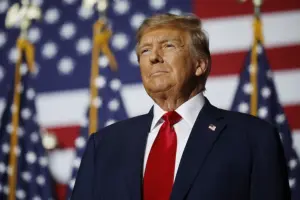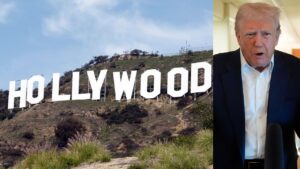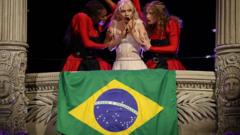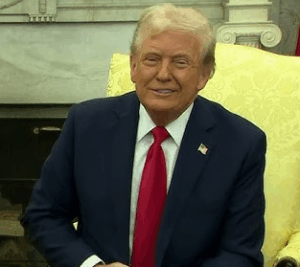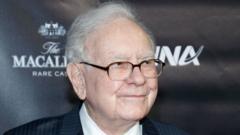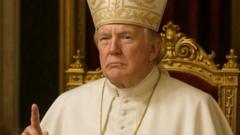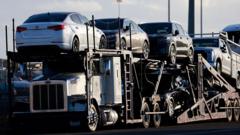Elon Musk’s gesture during Donald Trump’s inauguration rally has ignited a fierce backlash online, with comparisons to Nazi salutes. While critics decry the act as overtly fascist, Musk and some supporters defend it as an innocent expression of enthusiasm, emphasizing the need for nuanced interpretation.
Elon Musk Faces Backlash Over Controversial Gesture at Trump Rally
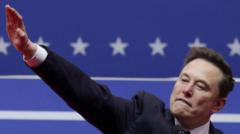
Elon Musk Faces Backlash Over Controversial Gesture at Trump Rally
The tech mogul's one-armed salute at a post-inauguration event draws allegations of resemblance to a Nazi salute, sparking heated debate.
Elon Musk, the world’s richest man and a vocal supporter of former President Donald Trump, has found himself at the center of controversy following an arm gesture he made during a speech celebrating Trump's inauguration. The event took place at the Capital One Arena in Washington, D.C., where Musk thanked the audience for "making it happen." As he spoke, Musk placed his right hand over his heart and extended the same arm forward, a move that has drawn sharp criticism and numerous comparisons to a Nazi salute.
Responses across social media, particularly on X (formerly Twitter), were immediate and fervent, with many users alleging that Musk's gesture was a clear nod to Nazi imagery. Notably, historian Claire Aubin remarked that the gesture resembled a "sieg heil," urging viewers to trust their observations. Similarly, Ruth Ben-Ghiat, a professor specializing in fascism, echoed these sentiments, highlighting the troubling implications of the gesture.
Adding fuel to the fire, Andrea Stroppa, a close Musk associate, contributed to the discourse by framing Musk's gesture as reminiscent of a Roman salute historically linked to fascist regimes. This reference was met with backlash, prompting Stroppa to later clarify his stance, insisting that Musk’s expression was merely a personal display of affection and should not be interpreted as a salute tied to extremist ideologies.
In response to the outrage, Musk dismissed the backlash, indicating that characterizing every potential offense as Nazi-related has grown tiresome. “Frankly, they need better dirty tricks,” he stated on X.
The incident culminates in a broader conversation about Musk's evolving political positions, which have seen a noticeable shift towards the right, including explicit support for parties such as Germany's AfD and Britain's Reform UK.
Despite significant criticism, Musk has garnered defenders, including the Anti-Defamation League, which stated that the gesture appeared awkward but was not inherently tied to Nazism. This incident exemplifies the challenges of public figures navigating political symbols and gestures in a hyper-sensitive social climate. As Musk continues to align closely with Trump, the implications of his actions and statements remain a point of contention among observers and supporters alike.





